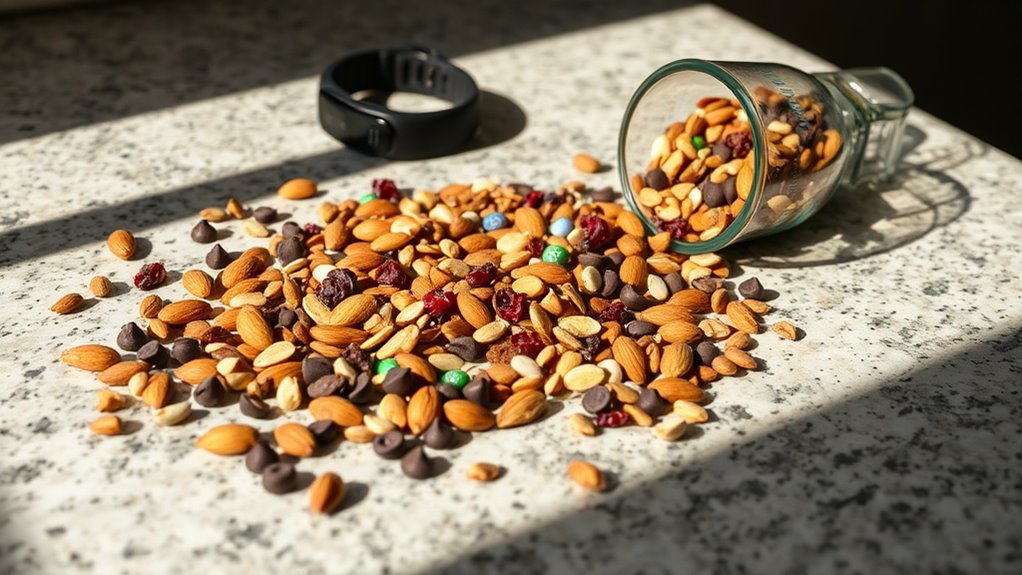Why You’re Not Losing Weight After 30 (and How to Fix It)
You might not realize that after 30, your metabolism slows by 5-10% per decade due to hormonal shifts like dropping estrogen and testosterone. This makes weight loss tougher, but with targeted strategies like strength training and smarter eating, you’re set to reclaim control and see real progress.
Metabolic Changes and Weight Loss Challenges
As you approach your 30s, your metabolism naturally slows, creating hurdles for weight loss that didn’t exist in your earlier years.
Evidence from studies shows this decline reduces your basal metabolic rate, making weight loss after 30 more demanding as you burn fewer calories at rest.
To address this, prioritize strength training to preserve muscle mass, which boosts calorie expenditure. Additionally, incorporating adequate sleep is essential for optimal metabolic function, helping to regulate your body’s energy use and support weight loss efforts.
Combine it with consistent cardio and a nutrient-rich diet focused on whole foods and controlled portions.
Track your progress regularly, adjust based on results, and maintain a sustainable routine to effectively manage these metabolic changes.
Hormonal Shifts After Age 30
Hormonal shifts after age 30 directly affect your weight loss journey, as research from the Endocrine Society highlights declines in estrogen for women and testosterone for men, which promote fat accumulation and reduce muscle mass. These changes increase your body’s fat storage and slow metabolism, making it tougher to shed pounds. You can counteract them with evidence-based strategies like resistance training, which builds muscle and counters hormonal effects, as shown in studies from the Journal of Clinical Endocrinology. Additionally, addressing hidden hormonal imbalances can be crucial for effective weight management.
To emphasize key hormonal impacts and actions:
| Hormone | Key Impact | Actionable Strategy |
|---|---|---|
| Estrogen (Women) | Increased fat storage | Engage in strength training |
| Testosterone (Men) | Muscle mass loss | Incorporate HIIT sessions |
| Cortisol | Stress-related fat gain | Practice stress reduction |
| Insulin | Reduced sensitivity | Maintain regular activity |
| Growth Hormone | Slower recovery | Prioritize quality sleep |
Diet Habits That Hinder Progress
Beyond hormonal influences, you might unknowingly undermine your weight loss goals with certain diet habits that research, such as studies from the American Journal of Clinical Nutrition, links to increased fat storage and metabolic slowdown.
For instance, skipping meals spikes insulin levels, prompting your body to store more fat, as shown in clinical trials. Overloading on processed carbs disrupts blood sugar, making you crave more and gain weight faster. Additionally, consuming foods like low-fat yogurt can lead to higher sugar levels that sabotage your progress.
You can fix this by prioritizing balanced meals with protein and veggies; evidence from longitudinal studies proves it boosts metabolism and curbs hunger effectively.
Stay consistent to see results.
Exercise Adjustments for Better Results
While age-related muscle loss can slow your metabolism, tweaking your exercise routine boosts weight loss efficiency after 30. You need to prioritize strength training, like weightlifting or bodyweight exercises, to build muscle and rev up your basal metabolic rate—studies confirm it preserves lean mass. Incorporate compound movements, such as squats and deadlifts, which engage multiple muscle groups for maximum calorie burn. Vary your cardio with high-intensity interval training (HIIT) to enhance fat oxidation without overtaxing joints. Additionally, establishing a solid nighttime routine can improve sleep quality, leading to better weight management. Track progress weekly, adjusting intensity to maintain challenge, ensuring sustained results as you age. Consistency drives success.
Practical Strategies to Boost Weight Loss
Building on your exercise tweaks, you can implement everyday strategies that accelerate weight loss and sustain results.
Prioritize protein-rich meals to enhance satiety and metabolism, backed by research showing it curbs overeating. Track calories precisely with apps, as evidence indicates awareness boosts adherence.
Drink water before meals to cut intake by up to 13%, per studies. Proper hydration supports body functions and digestion, further contributing to effective weight loss. Manage stress through techniques like meditation, which lowers cortisol and prevents fat storage.
Aim for 7-9 hours of sleep nightly to regulate hormones like leptin, ensuring long-term success. These tweaks, when consistent, deliver measurable progress.





